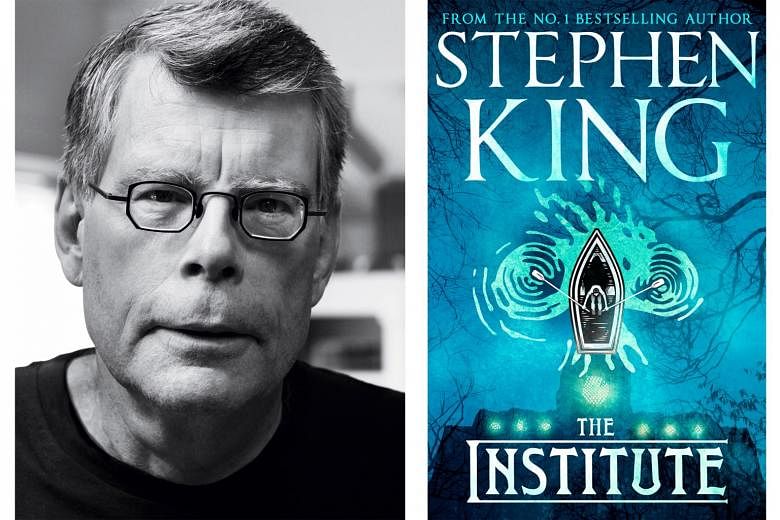FICTION
THE INSTITUTE
By Stephen King
Hodder & Stoughton/Hardcover/ 485 pages/$38.95/Books Kinokuniya
4 stars
They come in the middle of the night. They kill his parents and snatch him from his bed.
When Luke Ellis, the 12-year-old hero in Stephen King's latest novel, wakes up, he is in the Institute, a secret project that seeks to harness psychic powers that he and the other child captives have, to terminate certain people before they become full-blown "monsters".
The kids are told that they are nobly serving the nation but there will be pain and discomfort before they get to go home.
No child buys that lie entirely, certainly not Luke who vows to himself that he would rather die than end up in another part of the institute where more harrowing experiments await.
King adroitly steers the plot forward with heart-tugging dialogue and raw sketches of life (and death) in the institute.
Some of the kids fight back, asking their tormentors: "But how do you sleep at night after putting us through this? How would you react if the kid you ill treat is your own child?"
Hell breaks loose when Luke decides to escape.
New readers, perhaps coming to this book via horror movie It (based on King's novel of the same name) and the sequel, will not find supernatural menace here, but that does not mean that evil cannot reside in men, women and even children.
Those who have grown up with King's prodigious output over the years will note that he has become more economical with his words in this book, dropping a previous tendency to over-describe.
While that makes for a faster pace and sharper narrative, some may also find the slimmed-down approach a tad less fulfilling.
But the plot retains his ability to terrify, and The Institute has many moments where the reader will cringe over the excruciating torture meted out to the kids.
King, as his tweets in real life reveal, has no love for bureaucrats and politicians who are zealots and think that the means justify the ends.
Still, he does not come out openly to pass judgment in this book, even as the evil-doers play god.
Towards the end of the story, one person linked to the project says: "Thousands of children have died in this process but billions of children have been saved."
King wants the reader to consider if certain situations, immoral as they seem, can be accepted as necessary evils.
Even some of the kids in the story, despite their ordeals, are not sure if they did the right thing by rebelling.
The reader may well have a couple of sleepless nights mulling over the dark choices and outcomes here. If you like this, read: Orphan X by Gregg Hurwitz (Penguin, 2016, $17.66, Books Kinokuniya), about a 12-year-old who is trained to be an assassin.


